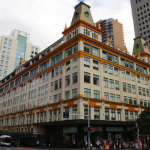COVID-19: Victoria Introduces Judge-Only Trials

One of the few rights guaranteed by the Australian Constitution is the right to a trial by jury.
The right is contained in section 80 of the Constitution, which provides that:
“The trial on indictment of any offence against any law of the Commonwealth shall be by jury, and every such trial shall be held in the State where the offence was committed, and if the offence was not committed within any State the trial shall be held at such place or places as the Parliament prescribes.”
A ‘trial on indictment’ is one that takes place in the higher courts such as the District Court (or County Court in Victoria) or Supreme Court, which is why jury trials are not constitutionally required in the Local Court.
The fact that the right to a jury trial is one of just five rights expressly guaranteed in the Australian Constitution is a testament to the fundamental importance placed on having seriously criminal charges decided by a ‘jury of our peers’, rather than by a member of the judiciary.
Judge-alone trials in New South Wales: Pre COVID-19
Yet despite section 80, the New South Wales parliament made amendments to the Criminal Procedure Act 1986 (NSW) (the Act) in 1990 which facilitated trials by a ‘judge-alone’ – meaning that the arbiter of both the law and the facts is a single judge.
Until 2011, the defence was required to obtain the consent of the prosecution for a trial to occur by a judge-alone. However, further amendments were made to the Act in that year to allow for judge-alone trials to occur in other limited situations.
The relevant substantive rules are now embodied in sections 132, 132A and 133 of the Act.
Section 132 provides that a defendant or prosecutor may apply for a District or Supreme Court trial to be tried by a judge alone – which is referred to as a ‘trial by judge order’.
The section says that upon such an application being made, the court:
- Must make such the order if both parties agree,
- Cannot make the order if the defendant disagrees,
- May make the order if the prosecution disagrees if it is in the interests of justice to do so,
- May refuse to make the order if the trial will involve a factual that requires the application of objective community standards, such as reasonableness, negligence, indecency, obscenity or dangerousness,
- Must refuse to make the order unless satisfied the defendant has sought and received advice about such orders from an Australian lawyer, and
- May make the order despite any of the above if there is a substantial risk a jury trial may lead to an offence of interfering with jurors, witnesses or judges under sections 320 to 326 of the Crimes Act 1900 (NSW),and that risk cannot be mitigated.
Section 132A requires that an application under section 132 for criminal proceedings must be made at least 28 days before the trial date, except with the leave (permission) of the court.
It further provides that an application must not be made in a joint trial – meaning a trial with more than one defendant – unless all defendants apply and each application is made in respect of all offences being tried.
Section 133 empowers a judge sitting alone in criminal proceedings to make findings of fact, which is normally the responsibility of the jury. It requires the judge to include the applied principles of law and findings of fact in any judgement, and to take into account any warnings that would normally be given to the jury.
Victoria introduces judge-alone trials
Until now, Victoria has resisted the introduction of judge-alone trials, over fears it will dilute the fundamentals of democracy by allowing decisions on guilt in higher courts to be determined by a single member of the judiciary, rather than a ‘jury of our peers’.
However, the current delays in court proceedings brought about by COVID-19 have led to the introduction of laws which enable these trials to occur for the next six months only.
There has been speculation that part of the impetus for introducing the new rules is the trial of George Pell, whereby the high ranking Catholic official was unanimously found guilty by a jury, only to have that verdict unanimously overturned and verdicts of not guilty entered by the High Court of Australia.
Whatever the reasons for the move, Victorians who are in custody facing a trial in a higher court will now be able to apply to have their trials heard by a judge-alone.
COVID-19: What’s the current situation in New South Wales?
Like Victoria, all jury trials are currently suspended in New South Wales.
According to the District Court of NSW, this situation:
“… is being reviewed each month and will continue until at least 31 May 2020. However, the District Court is hopeful that jury trials will resume in some locations earlier than previously anticipated.
Where the hearing of a jury trial is temporarily suspended as a result of the Coronavirus Pandemic and the evidence of a complainant cannot be taken or pretrial issues determined, the Court’s policy is to provide a new trial date to the parties at the time the trial is vacated. The trial is not to be stood over to some future date for mention.
Trials which have dates for hearing on and from 1 June 2020 will not be vacated because of the Coronavirus Pandemic earlier than two weeks before the date fixed for trial.
New dates for vacated trials and new trials are to be allocated the first suitable available date after 5 September 2020.”
In relation to judge-alone trials, the COVID-19 Legislation Amendment (Emergency Measures) Act 2020 amended section 365 of the Criminal Procedure Act 1986 so that it now reads as follows:
“(1) A court may, on its own motion, order that an accused person be tried by a Judge alone.
(2) A court may make an order under subsection
(1) only if—
(a) the accused person consents to be tried by a Judge alone or, for a joint trial, all the accused persons consent to be tried by a Judge alone, and
(b) if the prosecutor does not agree to the accused person being tried by a Judge alone, the court considers it is in the interests of justice for the accused person to be tried by a Judge alone, and
(c) the court is satisfied the accused person has sought and received advice from an Australian legal practitioner in relation to the effect of an order that the person be tried by a Judge alone.
(3) This section applies despite any other provision of this Act, including sections 132 and 132A.”
This means judge-alone trials are currently available under the laws of our state.
However, the District Court has issued a memorandum which reads:
“On and from 1 April 2020, the District Court of NSW will temporarily suspend New Judge alone trials, sentence hearings, Local Court Appeals, arraignments and readiness hearings, where the defendant is not in custody. This temporary suspension will be reviewed on 1 May 2020.”
This suggests that only those in custody will be approved by the court for a judge-alone trial, and that the situation will be reviewed in coming days.






